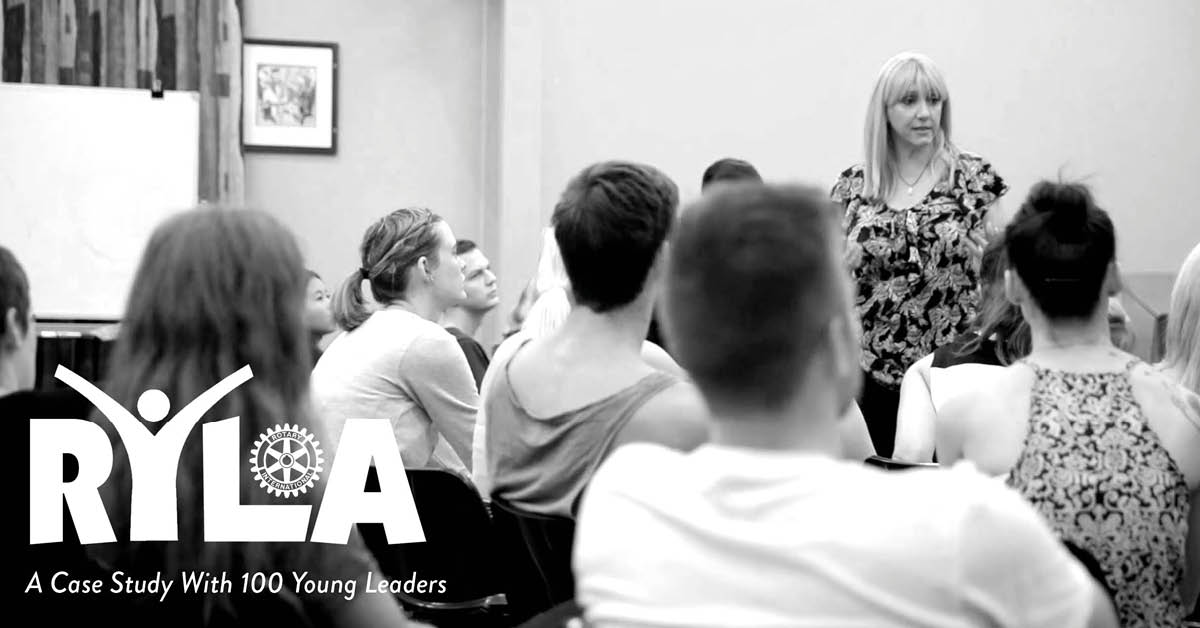A Leadership Model that Offers a Holistic Approach to Human Potential
With a keen interest in leadership development, I was inspired to engage with the i4 Neuroleader Model & Methodology for a few reasons. As a neurobiology-based personal leadership and well-being model, it aligned with my interest in the growing body of neuroscientific research on brain development and behaviour. This differentiation from other leadership and assessment models offers an evidence-based point of distinction.
Unlike many other leadership models, it works beyond the organisational context, focusing on the human aspect of the leader in any context. It acknowledges that to deal with the uncertainty of our current world, we must activate innovative & creative ways of thinking and being, through the development of trusted environments and collaboration with others, to navigate ambiguity in an agile manner.
The i4 Neuroleader™ Program & Model offers a holistic approach to human potential. By integrating elements of the brain, heart and gut, it takes a transformative approach to growth and development, acknowledging all aspects of the characteristics needed to thrive in our Imagination Age.
Sally Wernham
Key Learnings And Experiences
In exploring the four competencies of this model (Performance, Collaboration, Innovation and Agility), with a further four pillars describing each competency, a broad understanding of this model has been achieved.
Breaking down each pillar into specific traits and behaviours, which are reflected in the feedback assessment questions, provides a comprehensive framework and a balanced approach to the personal characteristics required for effective leadership in the 21st century. In particular, I resonated with the value placed on authenticity, humility and curiosity, in the leadership context.
Participation in the 3-day workshop provided further experiential consolidation of this understanding of the model and its unique approach. The combination of activities evoked different neurological responses and experiences, through movement, play, affirmation, music, collaboration, healthy food, and demonstrated a powerful impact in adopting holistic leadership development. This was further amplified by working with a collaborative group, who shared experiences, an early preparedness for vulnerability, and demonstrated emotional intelligence and self-awareness.
Viewing brain imaging, including the scans demonstrating the physical impact on the brain from diseases and other afflictions, provided insight into neuroplasticity and the brain’s ability to regenerate given the right conditions. This knowledge invoked consideration of what may be offered through my own coaching practice, to enable others to reset their context towards more effective leadership, and a healthier, more fulfilling life.
There is a need for greater social intelligence among teams to move visions forward, with individuals who not only know how to lead but can also follow. Both leadership and follow-ship are necessary at all levels of an organisation, so that we may acknowledge, leverage and embrace the unique value offered by all team members. We now require social thinking, as much as analytical thinking, to create an innovative, competitive advantage in a professional environment, and must value the perspectives of younger generations, and much as wisdom and guidance of more experienced generations.
The I4 Neuroleader Assessment
My participation in the 360-feedback i4 Neuroleader Report enabled a greater understanding of the structure, process and debriefing elements of the assessment. Reviewing the results, through a facilitated debrief session as well as my own reflection, helped to identify the gaps between self-perception and the views of others across many contexts.
During this process, I sought feedback from a broad group of contacts, including current managers, peers, direct reports, previous managers and reports, friends and family. This provided comprehensive feedback and tested any incongruencies in the perceptions of respondents from different life environments (i.e. personal vs professional). I see considerable value in encouraging clients to also adopt this diverse approach, as it delivers a more authentic and holistic result.
The strength of this feedback process lies in both affirming where self-assessment is consistent with the views of others; and in identifying where significant gaps are apparent, understanding these gaps, and how to address the inconsistencies. Focus on these “blind spots” creates greater self-awareness and is supported through information and practical strategies to consider for further development, in the “Leadership Is Upside Down” Workbook.
Ongoing Use Of The i4 Neuroleader Model
I envisage several opportunities to utilise the  . Within my current workplace, I have introduced the principles of this model to my team, to inform a more holistic approach to leadership and team development.
. Within my current workplace, I have introduced the principles of this model to my team, to inform a more holistic approach to leadership and team development.
Within my own consulting practice, utilising the i4 Model for my clients expands my coaching capability, and provides me with a credible methodology that I can use repeatedly and consistently. There is significant value in accessing resources and IP in representing this approach, for a professional market presentation. This will allow me to establish a market presence through a recognised, evidence-based methodology, supported by my coaching and advisory services.
The expertise that may be leveraged through other i4 Practitioners, as a community of like-minded leaders, cannot be understated. In undertaking coaching and mentoring for others, it is my practice to ensure that a client’s specific needs and expectations are met, which at times may require a recommendation to work with an alternative coach to achieve a more effective personal and professional alignment.
I am invested in supporting others to understand and leverage their strengths and grow and strive towards their possibilities. As an executive in the early childhood education and care sector (and with experience across other education sectors), I have an interest in the brain development of young children and the link to children’s behaviour and life outcomes, together with the well-being of educators as they create the environment for learning and development for our children.
I recently had the opportunity to hear Dr Stuart Shanker speak on the study of the developing brain in young children, in which he discussed the “red brain, blue brain” balance and the importance of self-regulation skills for children to reframe their response to stress and subsequent behaviours.
He explains that even where problems become entrenched in a child's behaviour, trajectories can be changed (even for inter-generational trauma), which is consistent with the i4 teachings about neuroplasticity and the ability to reframe cognitive patterns and regenerate damage to the brain.
There is an opportunity to utilise the i4 Neuroleader Model within the early childhood sector, leveraging the research on early childhood brain development, and supporting the development of early childhood educators as authentic, knowledgeable and confident leaders.
- i4 Neuroleader (353)
- Leadership & Culture (336)
- Brain Health & Wellbeing (206)
- Innovation (97)
- Performance (85)
- Our News (79)
- Collaboration (68)
- Agility (53)
- Practitioner Stories (44)
- In The Press (36)
- Make Me A Leader (33)
- Balance (31)
- Integration (30)
- Imagination (29)
- Awareness (23)
- Brain-Friendly Channel (22)
- Brain-Friendly Leadership (22)
- Communication (22)
- Curiosity (21)
- Inspiration (19)
- Intuition (19)
- Attitude (17)
- Courage (16)
- Adaptability (14)
- Case Studies (14)
- Drive (14)
- Generosity (13)
- Ethics (9)
- Mental Readiness (9)
- Influence (8)
- Retreat (8)
- Brain-Friendly Leadership (1)
- Oracle Cards (1)
- 1 November 2025 (2)
- 1 September 2025 (3)
- 1 August 2025 (5)
- 1 July 2025 (5)
- 1 June 2025 (2)
- 1 April 2025 (1)
- 1 March 2025 (8)
- 1 February 2025 (3)
- 1 September 2024 (4)
- 1 July 2024 (2)
- 1 June 2024 (6)
- 1 May 2024 (2)
- 1 April 2024 (3)
- 1 March 2024 (1)
- 1 November 2023 (1)
- 1 August 2023 (1)
- 1 July 2023 (2)
- 1 June 2023 (2)
- 1 May 2023 (4)
- 1 April 2023 (2)
- 1 March 2023 (7)
- 1 February 2023 (4)
- 1 January 2023 (1)
- 1 September 2022 (1)
- 1 May 2022 (3)
- 1 April 2022 (1)
- 1 March 2022 (5)
- 1 February 2022 (4)
- 1 January 2022 (4)
- 1 December 2021 (2)
- 1 November 2021 (4)
- 1 October 2021 (3)
- 1 September 2021 (6)
- 1 August 2021 (1)
- 1 April 2021 (1)
- 1 December 2020 (2)
- 1 November 2020 (1)
- 1 September 2020 (1)
- 1 August 2020 (1)
- 1 July 2020 (3)
- 1 June 2020 (4)
- 1 May 2020 (3)
- 1 April 2020 (4)
- 1 March 2020 (6)
- 1 February 2020 (4)
- 1 January 2020 (2)
- 1 December 2019 (3)
- 1 November 2019 (3)
- 1 October 2019 (5)
- 1 September 2019 (4)
- 1 August 2019 (4)
- 1 July 2019 (4)
- 1 June 2019 (5)
- 1 May 2019 (9)
- 1 April 2019 (9)
- 1 March 2019 (8)
- 1 February 2019 (7)
- 1 January 2019 (8)
- 1 December 2018 (5)
- 1 November 2018 (10)
- 1 October 2018 (16)
- 1 September 2018 (9)
- 1 August 2018 (10)
- 1 July 2018 (9)
- 1 June 2018 (8)
- 1 May 2018 (9)
- 1 April 2018 (9)
- 1 March 2018 (9)
- 1 February 2018 (8)
- 1 January 2018 (8)
- 1 December 2017 (6)
- 1 November 2017 (9)
- 1 October 2017 (9)
- 1 September 2017 (8)
- 1 August 2017 (10)
- 1 July 2017 (8)
- 1 June 2017 (8)
- 1 May 2017 (9)
- 1 April 2017 (8)
- 1 March 2017 (6)
- 1 January 2017 (3)
- 1 December 2016 (4)
- 1 November 2016 (5)
- 1 October 2016 (4)
- 1 September 2016 (2)
- 1 August 2016 (4)
- 1 July 2016 (4)
- 1 June 2016 (2)
- 1 May 2016 (3)
- 1 April 2016 (3)
- 1 March 2016 (7)
- 1 February 2016 (2)
- 1 January 2016 (5)
- 1 December 2015 (2)
- 1 November 2015 (2)
- 1 October 2015 (4)
- 1 September 2015 (2)
- 1 August 2015 (2)
- 1 July 2015 (1)
- 1 June 2015 (3)
- 1 May 2015 (4)
- 1 April 2015 (5)
- 1 March 2015 (3)
- 1 February 2015 (3)
- 1 January 2015 (3)
- 1 December 2014 (3)
- 1 November 2014 (3)
- 1 October 2014 (3)
- 1 September 2014 (5)
- 1 August 2014 (4)
- 1 July 2014 (5)
- 1 June 2014 (3)
- 1 May 2014 (1)
- 1 March 2014 (1)
- 1 December 2013 (2)
- 1 November 2013 (1)
- 1 July 2013 (1)
- 1 June 2013 (1)
- 1 May 2013 (3)
- 1 April 2013 (1)
- 1 March 2013 (2)
- 1 February 2013 (1)
- 1 January 2013 (2)
- 1 November 2012 (1)
- 1 October 2012 (1)
- 1 September 2012 (1)
- 1 August 2012 (2)
- 1 July 2012 (1)
- 1 June 2012 (1)
- 1 May 2012 (2)
- 1 April 2012 (1)
- 1 February 2012 (1)
- 1 January 2012 (1)
- 1 November 2011 (1)
- 1 October 2011 (3)
- 1 September 2011 (2)
- 1 July 2011 (1)
- 1 June 2011 (1)
- 1 May 2011 (1)
- 1 April 2011 (1)
- 1 March 2011 (1)
- 1 February 2011 (2)
- 1 January 2011 (4)
- 1 December 2010 (4)
- 1 November 2010 (3)
- 1 October 2010 (5)
- 1 September 2010 (4)
- 1 August 2010 (4)
- 1 July 2010 (3)
- 1 June 2010 (4)
- 1 May 2010 (7)
- 1 April 2010 (5)
Subscribe by email
You May Also Like
These Related Stories

Giving A Head Start To Our Leaders Of Tomorrow

VUCA In The Public Sector & The i4 Neuroleader Model



No Comments Yet
Let us know what you think